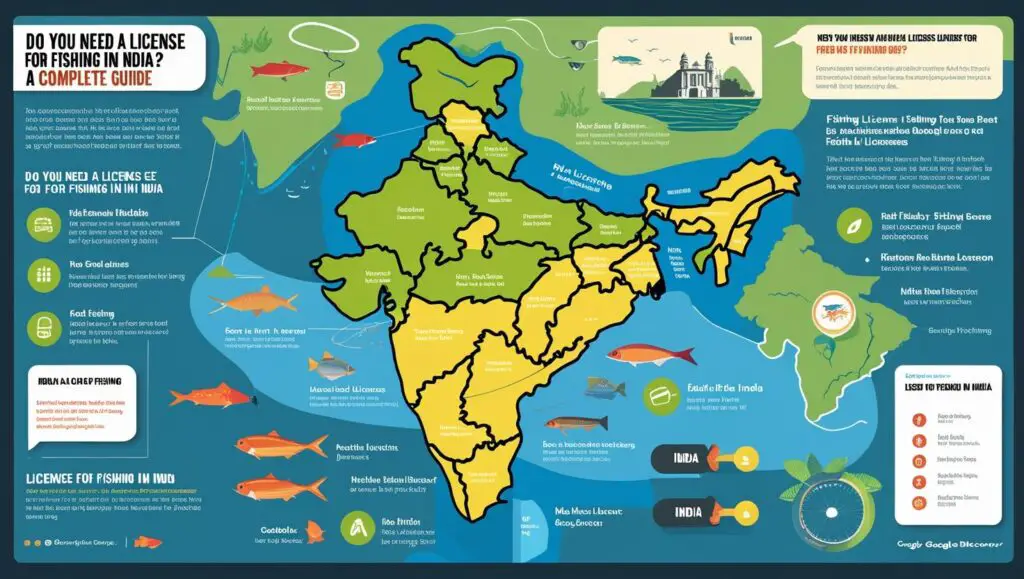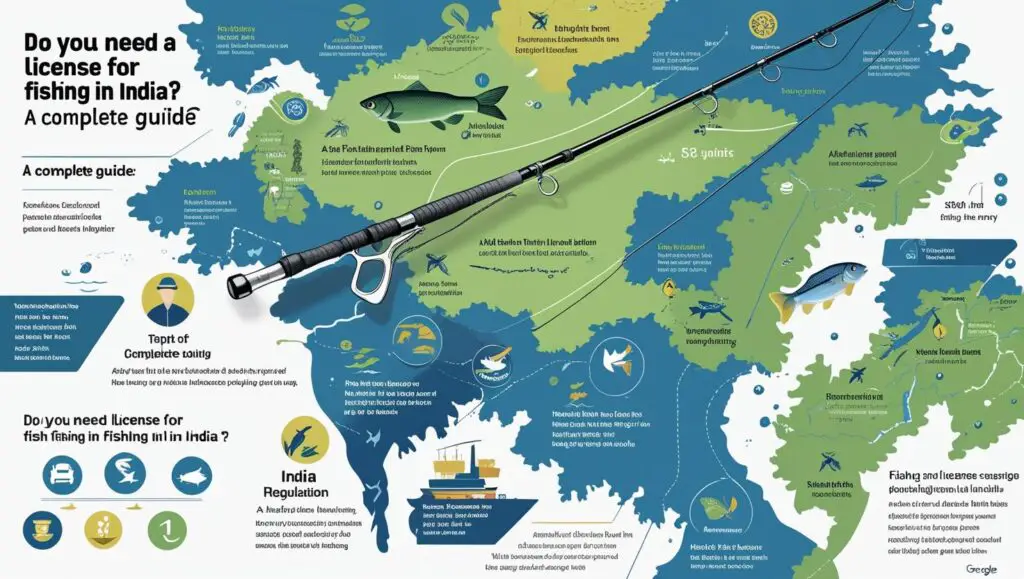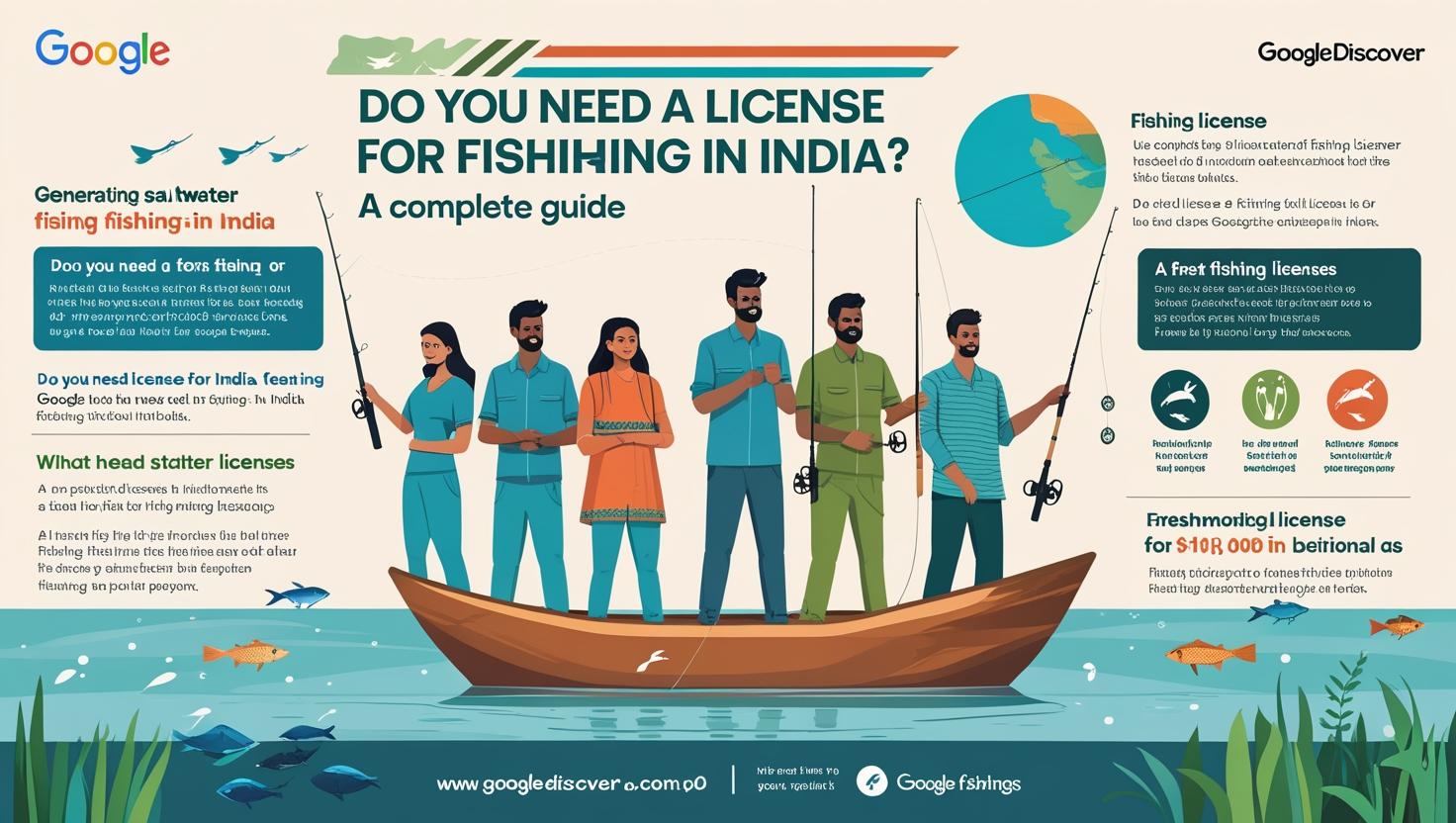Fishing in India has evolved from being a traditional livelihood and recreational activity to a highly regulated and monitored practice. Whether you’re casting a line in a serene river, a bustling coastal region, or a tranquil lake, understanding India’s fishing license requirements is essential for compliance, conservation, and sustainability.
Understanding the Legal Framework of Fishing in India
Fishing in India is governed by both state-specific rules and central regulations, primarily under the following laws:
- The Indian Fisheries Act, 1897
- The Environment (Protection) Act, 1986
- The Wildlife Protection Act, 1972
- Marine Fishing Regulation Acts (State-specific)
Each Indian state or Union Territory has its own set of fisheries regulations that outline where, when, and how fishing can be conducted. Hence, the requirement for a fishing license in India is determined by the location and type of fishing activity. Fishing in India
Do You Need a License for Recreational Fishing?
Recreational or Sport Fishing in Freshwater
In most Indian states, recreational fishing in rivers, lakes, and reservoirs often requires a license issued by the State Fisheries Department or Forest Department (in protected areas). Fishing in India
For example:
- In Uttarakhand, fishing in rivers like the Ganga and Yamuna requires a permit, which is issued for a daily or seasonal basis.
- In Himachal Pradesh, trout fishing is popular, and a daily license is mandatory.
- Karnataka and Kerala also require a license for fishing in forest or protected zones.
The license fees are generally nominal, ranging from ₹50 to ₹500 per day, depending on the state and the fishing zone. Fishing in India
Fishing in National Parks or Sanctuaries
Fishing in protected areas, like Wildlife Sanctuaries or National Parks, is strictly prohibited without explicit permission. Fishing in such zones without a license can lead to severe penalties, including fines and imprisonment, under the Wildlife Protection Act. Fishing in India

Do You Need a License for Marine or Coastal Fishing?
Artisanal and Subsistence Fishing
In coastal areas, traditional fishermen using non-motorized boats or simple gear are often exempted from licensing. However, many state governments now require registration of such vessels and identity cards for fisherfolk, particularly in states like Tamil Nadu, Goa, Maharashtra, and Andhra Pradesh. Fishing in India
Commercial Marine Fishing
For motorized and mechanized fishing vessels, a license is mandatory. These are issued under state-specific Marine Fishing Regulation Acts (MFRA). A few key requirements include: Fishing in India
- Fishing Vessel Registration
- Gear Licensing
- Fishing Zone Allocation
- Adherence to Closed Seasons
For instance, under the Tamil Nadu Marine Fishing Regulation Act, no mechanized boat can operate without a license, and fishing is banned during the monsoon ban period (usually April to June) to allow fish breeding.
Types of Fishing Licenses in India
The specific categories of fishing licenses in India generally fall under the following heads:
-
Recreational Fishing License
- Issued for angling or sport fishing
- Daily, weekly, or seasonal permits
- Usually for freshwater locations
-
Commercial Inland Fishing License
- For fish farming or fishing in lakes, reservoirs, and rivers
- Requires registration with local fisheries departments
-
Marine Fishing License
- For deep sea or nearshore fishing using mechanized boats
- Mandatory vessel registration and operational permit
-
Forest/Protected Area Permit
- For fishing in forest-managed water bodies or wildlife sanctuaries
- Strictly controlled and rare
How to Apply for a Fishing License in India
Each state has its own procedure and online portal for applying. In general, the steps include:
- Identify the jurisdiction (state/zone/area)
- Visit the official Fisheries Department website of the state
-
Fill in application form with details such as:
- Personal information
- Fishing equipment
- Location and dates
- Pay the prescribed fees via online or offline mode
- Submit identification documents (Aadhar card, address proof)
- Await verification and approval
- Download or collect your fishing permit/license
Example: Applying for Fishing Permit in Himachal Pradesh
You can apply via https://himachal.nic.in under the Department of Fisheries section, choosing “Trout Fishing License”, selecting the river beat and date, and paying the fee online.

Fishing License Fees in India
The license fees are relatively affordable, aimed at regulating rather than restricting:
| License Type | Duration | Approx. Fee (INR) |
|---|---|---|
| Recreational Daily Pass | 1 day | ₹50 – ₹500 |
| Seasonal Sport Fishing | 30-90 days | ₹1000 – ₹5000 |
| Commercial Inland License | Annual | ₹2000 – ₹10,000 |
| Marine Fishing License | Annual | ₹5000 – ₹50,000+ |
Penalties for Fishing Without a License in India
Fishing without a proper license can lead to strict legal consequences, including:
- Fines ranging from ₹500 to ₹25,000
- Seizure of fishing equipment and catch
- Imprisonment (up to 3 years) under specific acts
- Blacklisting or suspension of future license applications
Special Zones and Seasonal Restrictions
Many Indian states have declared No-Fishing Zones, particularly during breeding seasons. For example:
- West Bengal and Odisha: Turtle nesting zones are off-limits
- Maharashtra and Gujarat: Monsoon fishing bans are enforced from June to August
- Andaman & Nicobar Islands: Coral reef fishing is heavily regulated
Always verify seasonal restrictions and area-specific rules before planning any fishing expedition.
Can Foreign Tourists Get a Fishing License in India?
Yes, foreign anglers and tourists are eligible to apply for fishing permits in states like Uttarakhand, Himachal Pradesh, and Kerala. Tourists must provide:
- Valid passport and visa
- Local accommodation proof
- Short-term or guided fishing plans
Tour operators often arrange licenses for fly fishing, trout fishing, or game fishing in scenic locations like Rishikesh, Manali, or the Western Ghats.
Conclusion: Always Verify Local Regulations
India offers diverse and vibrant fishing opportunities, from Himalayan trout streams to the tropical marine coasts. However, each area operates under a distinct legal and ecological framework. Before fishing, always ensure:
- You have a valid license for the region and type of fishing
- You adhere to gear limitations, catch quotas, and seasonal bans
- You understand local conservation laws and protected zones
By following the rules, not only do you stay compliant, but you also contribute to the sustainable preservation of India’s rich aquatic ecosystems.


Leave a Reply